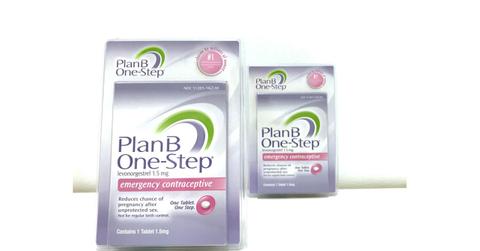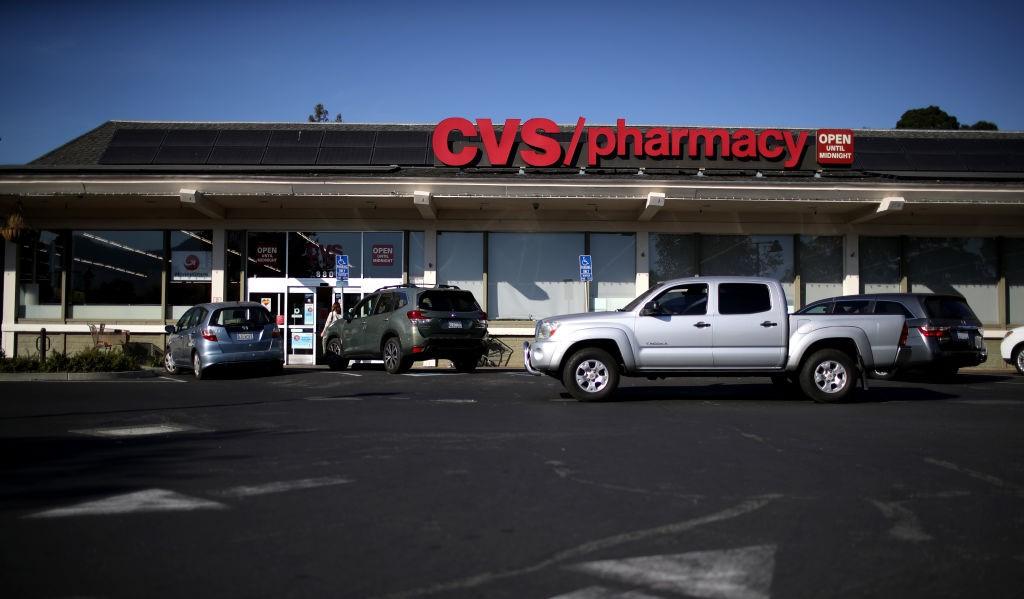Some Drug Stores Are Capping Plan B Purchases — There Isn't a Shortage
CVS drug stores are capping Plan B purchases, but it isn't necessarily because of a shortage. Why are purchases being capped? Here's what to expect.
June 28 2022, Published 11:50 a.m. ET
In the wake of the U.S. Supreme Court’s decision to overturn Roe v. Wade and the constitutional right to abortion access, legal action against the decision is pouring in. People with uteruses fear access to emergency contraception may become limited too. As a result, people are stocking up on Plan B and other emergency contraception pills, sparking what looks like a shortage but it's actually a sudden rise in demand.
On Monday, June 27, CVS drug stores announced they will cap purchases for emergency contraceptives to avoid a shortage, but other drug stores are accepting the overflow of demand.
CVS drug stores cap Plan B and Aftera purchases.
CVS Health Corp. (CVS) announced that it will cap purchases of emergency contraceptive pills Plan B and Aftera. The move follows a wave of heightened demand in the wake of the Supreme Court’s decision to overturn Roe v. Wade.
According to the company, CVS decided on the cap because it wants to maintain “equitable access and consistent supply on store shelves.” CVS says customers can't purchase more than three Plan B and Aftera products in an order. Plan B costs $49.99 and Aftera costs $39.99.
Other drug stores are keeping Plan B purchases uncapped
CVS competitor Walgreens Boots Alliance Inc. (WBA) says it won't cap emergency contraception purchases at its Walgreens locations. However, online order limits may temporarily change in accordance with inventory if demand trends further upwards.
Plan B pills vs. abortion pills: What’s the difference?
Plan B and Aftera emergency contraceptives don't require a prescription or ID to purchase. These pills can prevent pregnancies within 72 hours of intercourse. In contrast, abortion pills require a prescription and operate on a two-pill regimen within the first 10 weeks of pregnancy.
Plan B purchase caps have been driven by frenzy, not a supply shortage.
There isn't a shortage of Plan B or Aftera in the supply chain. Increased demand from consumers stocking up over fear of emergency contraception restrictions is causing some drug stores to limit access. This is only to keep inventory available for more people over a longer period of time.
Fears over a loss of access to contraception are valid. Justice Clarence Thomas filed a concurring opinion after the decision to overturn Roe v. Wade. Thomas suggested the Supreme Court should consider revisiting other past high court decisions, including the constitutional right to contraception. If this were to proceed, emergency contraception would likely be a target considering religious and conservative groups often aim to protect unborn lives at the start of intercourse.
In Griswold v. Connecticut in 1965, the Supreme Court ruled to constitutionally protect married couples’ rights to contraception without government restriction. In Eisenstadt v. Baird in 1972, the court extended these rights to unmarried people. In Carey v. Population Services International in 1977, the court restricted states’ rights to limit distributions of contraceptives to people of any age.
Roe v. Wade is from 1973 and predates two of these decisions. Its overturn effectively undermines the later decisions. It isn't wild to consider the fact that contraception, ranging from Plan B to hormonal birth control, could be next.


